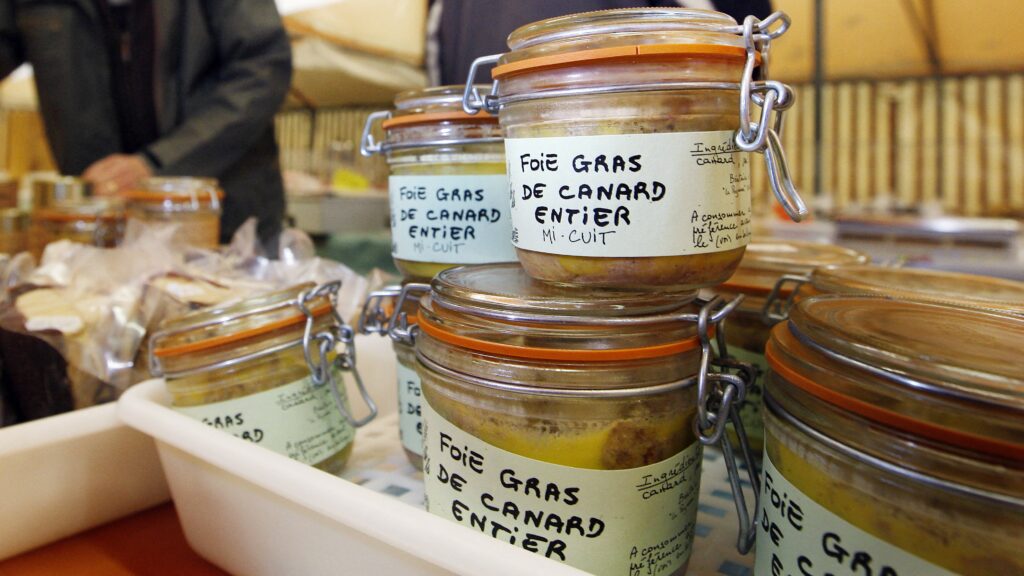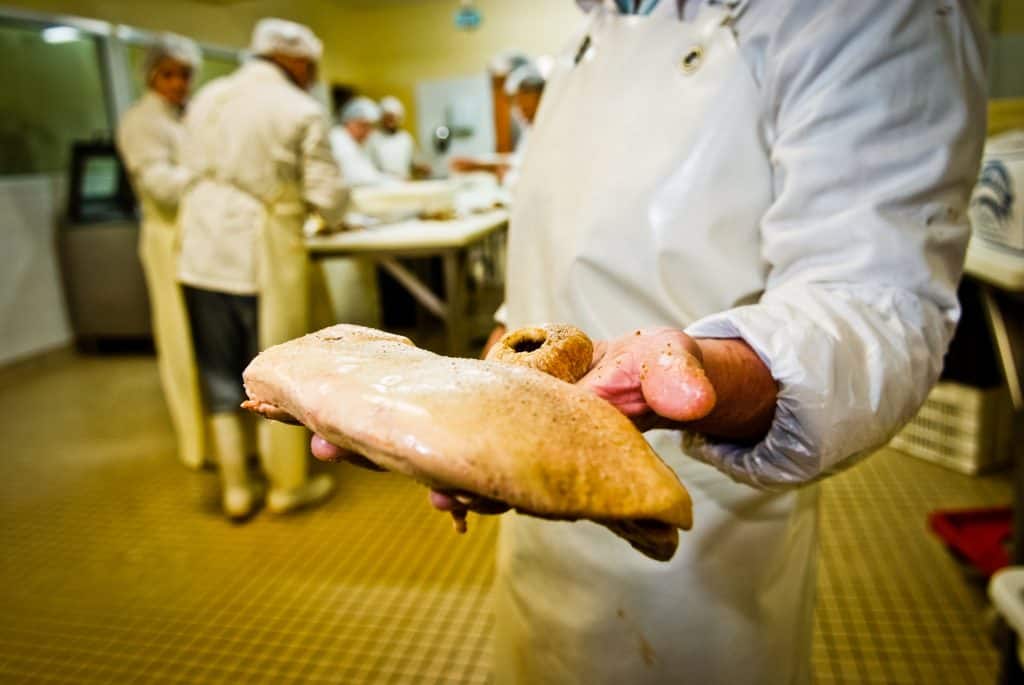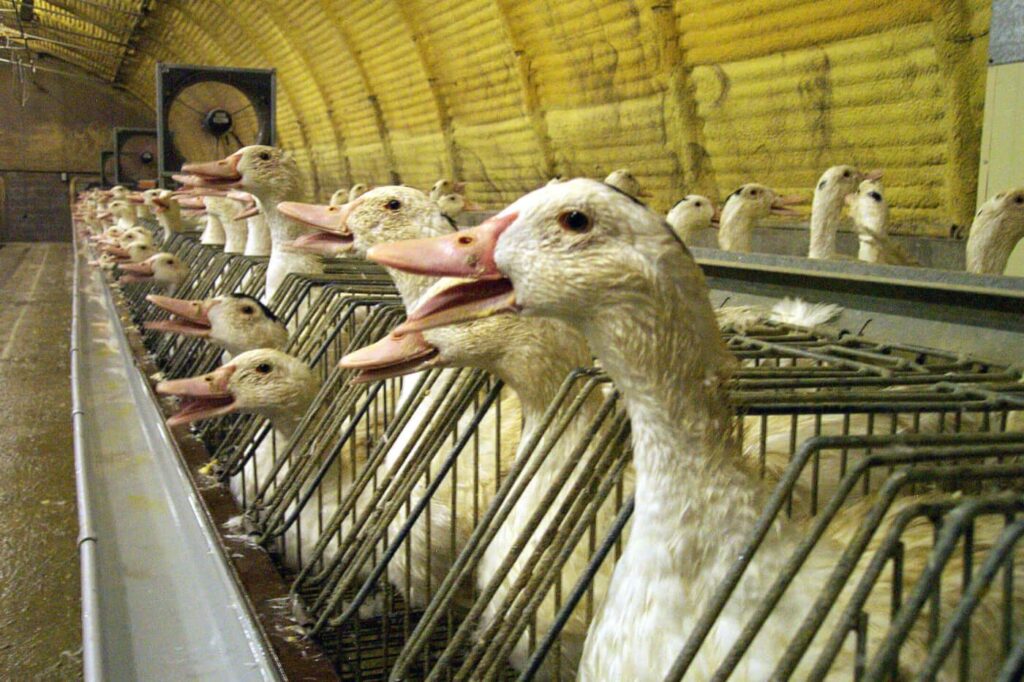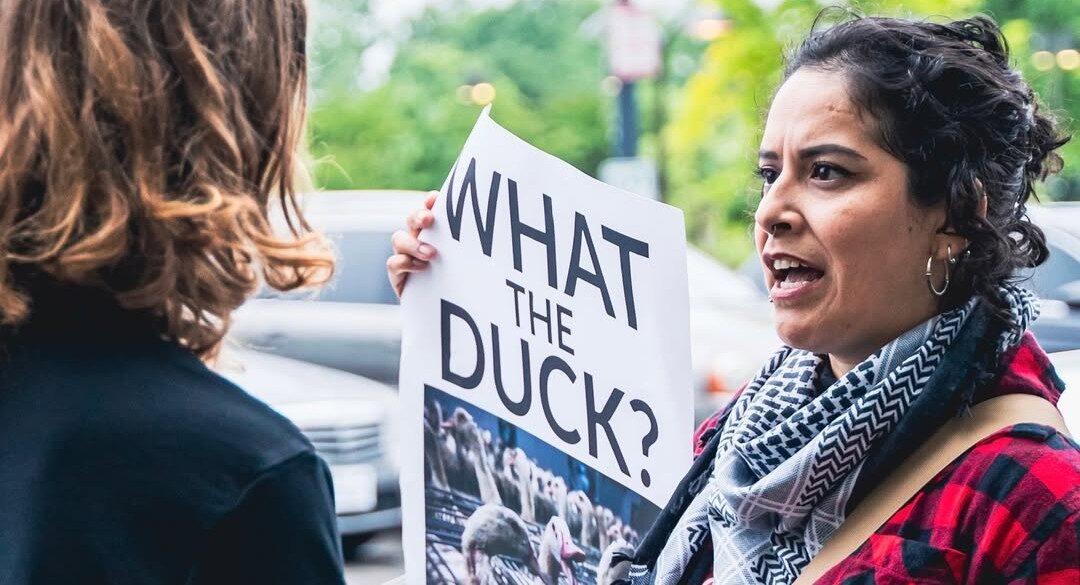The foie gras industry has spent years trying to convince the world that cruelty can be luxury. But behind the white tablecloths and silver spoons, the image is cracking. Once a prized symbol of French cuisine, foie gras is now losing ground on every front. Production is falling, restaurants are cutting ties, and courts are increasingly siding with the public. What was once celebrated as indulgence is now becoming a liability.
The truth is simple: foie gras isn’t timeless. It is a relic from another era, and its decline has become impossible to ignore.
An Industry in Decline
Across Europe, where nearly 80 percent of the world’s foie gras is made, things are looking bleak. France, the largest producer, keeps losing ground. Bird flu outbreaks wiped out millions of ducks, and every “recovery” since has been weaker than the last.
Official figures tell part of the story. Between 2019 and 2023, output across the European Union fell by nearly a third. France, which once produced close to 19,000 tonnes annually, has not come close to those numbers in years. Producers keep hoping for a rebound, but their own trade journals admit that “winning back consumers” has become the real challenge.
Seasonal dependence has deepened the instability. In France, as much as 70 percent of foie gras is sold during the Christmas season, compressing demand into a few weeks of the year. The rest of the time, shelves sit still. That is not a picture of a thriving culinary tradition. It is a sign of an outdated delicacy kept alive by nostalgia.
Younger generations view the product differently. What their parents saw as luxury, they see as unnecessary cruelty. Chefs who once built reputations on foie gras are now quietly removing it from their menus, aware that diners increasingly associate it with animal suffering rather than sophistication.

Even in France, the spell is breaking
As the country’s “gastronomic identity,” foie gras is a title meant to insulate it from criticism. Yet even inside France, the conversation is changing.
In 2024, Le Monde reported that some foie gras factories were shutting down because there simply wasn’t enough demand to stay open. While vaccines helped farmers recover from bird flu, high prices and low enthusiasm continued. The government can hand out subsidies, but it can’t force people to keep buying something they no longer believe in.
The truth is, foie gras is losing its audience. Its defenders are getting older, and its customers fewer. The product now survives mostly on tradition and tourism, but those supports are crumbling. France can keep protecting foie gras on paper, but not in people’s hearts.

3 Reasons WHY foie gras is losing cultural legitimacy
1. The reputational risk often outweighs the financial reward.
Restaurants gain little revenue from a small appetizer that sparks protests, petitions, vandalism risk, and negative press. Removing foie gras is easy, and it earns goodwill. That is why hundreds of luxury retailers and Michelin-starred chefs have decided to phase it out.
2. Public opinion keeps hardening against force-feeding.
According to a YouGov poll, commissioned in June 2023 by Animal Equality, nearly nine in ten Brits are in favor of a ban on the importation of foie gras made by force-feeding (86%, excluding the ‘don’t know’ responses). Most people can agree that force-feeding is inhumane treatment.
3. Foie gras is a product that relies on a few regions, a short selling season, and a handful of producers.
A single outbreak or legal ruling can cripple supply. Add to that a cultural shift away from animal exploitation, and the foundations of the industry begin to collapse.

TRADITION DOES NOT JUSTIFY SUFFERING
Societies evolve, and the most enduring customs are those that adapt to new moral standards. Force-feeding is already illegal across most of Europe, including Italy, Germany, and the Netherlands. Norway banned force-feeding for foie gras production in 1974.
Only five EU member states (France, Spain, Hungary, Bulgaria, and Belgium’s Wallonia region) still allow it. Israel outlawed the practice entirely in 2003 after its Supreme Court ruled that force-feeding violated national animal protection laws.
Take action today to help Pro-Animal Future end foie gras, for good:
- Sign Pro-Animal Future’s online petition to ask elected officials in 3 major U.S. cities to end the sale of foie gras.
- Sign up to volunteer to help pass our anti-foie-gras campaigns (in person, or remotely).
- Donate to fund advertising campaigns to pass our concurrent ballot initiatives to ban foie gras in Washington D.C. and Denver.
Pro-Animal Future is a grassroots political movement working to evolve beyond factory farming through local political action. [Learn more about us →]

